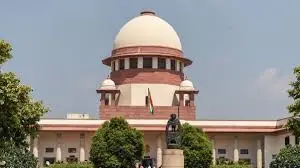Supreme Court defers pleas against Waqf (Amendment) Act till May 20

The Supreme Court of India has postponed the hearing on petitions challenging the Waqf (Amendment) Act, 2025. The court will now take up the matter on May 20, allowing more time for detailed arguments.
Several Muslim organizations and political groups filed the petitions. They claim the amendment threatens the independence of Waqf institutions and allows the government to interfere with Muslim religious endowments.
What Are the Key Issues in the Challenge?
The petitions raise multiple concerns. One major point is the amendment’s provision allowing non-Muslims to join Waqf Councils and State Waqf Boards. Traditionally, these bodies have only Muslim members.
Petitioners argue that nominating non-Muslims to oversee Muslim religious properties violates constitutional rights. They also worry it undermines community control over Waqf assets.
Another contested provision relates to identifying government land as Waqf property. The amendment expands the definition of Waqf to include “Waqf by user.” This concept means that if a person or group uses land for religious purposes, that land can be declared Waqf.
Opponents say this could lead to widespread state acquisition of land, affecting property rights and causing confusion over ownership.
Government’s Stand and Court’s Direction
Solicitor General Tushar Mehta assured the Supreme Court that the government will not enforce any part of the amended law until the court completes its review. This assurance aims to prevent any sudden changes affecting Waqf properties or administrative bodies.
The court has directed both the petitioners and the Centre to file detailed written submissions by May 19. This will help the justices review all aspects carefully before the hearing.
Background: What Is the Waqf (Amendment) Act, 2025?
The Waqf Act governs the administration of Muslim religious endowments in India. These endowments include mosques, graveyards, and charitable properties that serve religious and social purposes.
The 2025 amendment introduced several changes aimed at improving governance and transparency of Waqf boards. It seeks to address longstanding issues like corruption and mismanagement in Waqf properties.
Supporters argue the amendments will modernize Waqf administration. They say it will ensure better protection and maintenance of Waqf assets for the community’s benefit.
Why Is the Amendment Controversial?
Despite the government’s stated goals, the amendment sparked strong opposition. Many Muslim groups fear the changes could reduce their control over religious endowments.
Allowing non-Muslim members in Waqf councils is seen by critics as state interference. They argue this dilutes the community’s authority in managing its own religious affairs.
The expanded land definition also raises concerns. Some believe it could be misused to grab land under the guise of Waqf, affecting the rights of landowners and creating legal uncertainty.
What Could Happen Next?
The Supreme Court’s detailed hearing on May 20 will be crucial. The justices will examine if the amendment violates constitutional protections for religious freedom and minority rights.
If the court strikes down parts of the law, it could force the government to reconsider the changes or draft a new version. On the other hand, if the amendment is upheld, the government may begin enforcing the provisions.
Meanwhile, the Supreme Court’s interim decision means no enforcement will take place before the hearing. This temporary stay prevents disruption to Waqf boards and property management.
Conclusion
The Waqf (Amendment) Act, 2025, aims to reform the administration of Muslim religious endowments. However, it faces strong legal challenges over its impact on community rights and land ownership.
With the Supreme Court deferring the hearing to May 20, both sides now prepare detailed arguments. The verdict will shape how Waqf institutions operate in India and could influence future laws protecting religious minorities.
As the case develops, many will watch closely to see how India balances reform with religious autonomy and minority protections.






